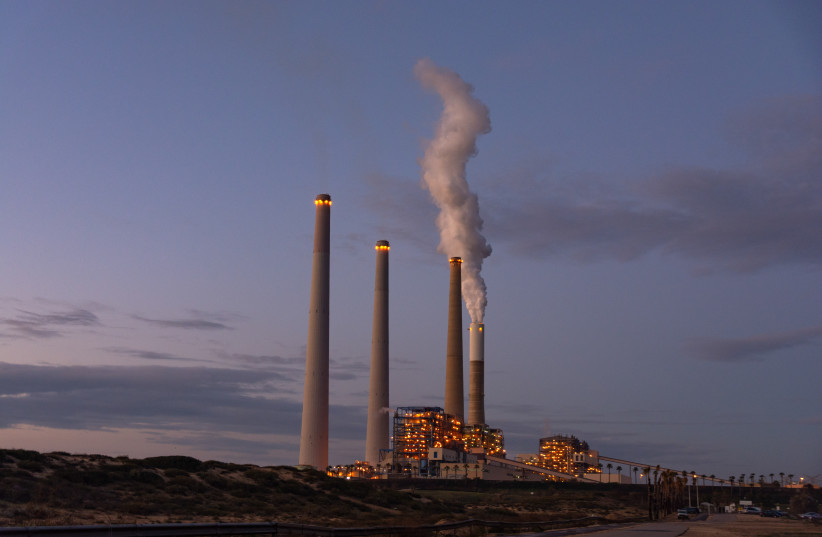Israel is going to the UN Climate Change Conference in Glasgow ready to show off its strategies to tackle environmental issues and to display innovative technologies to combat global warming, Environmental Protection Ministry Director-General Galit Cohen said Tuesday.
For years, environmental issues have taken a back seat in Israel, according to the State Comptroller’s Report.
However, Cohen said following approval of the plan to cope with climate change by the government on Sunday, things are about to change.
“I think that the events of this last summer have made us realize in Israel and in the rest of the world that climate change is here, and we cannot wait for the next generation to deal with it,” she said. “If we want to reduce its effects, we must act now. I believe that the new government understands this.”
Over the past few months, many countries, including the US and Germany, experienced very severe climate events that brought much devastation and caused many deaths. Israel had severe forest fires.

The “100 Action Items” plan includes policy tools in areas such as transportation, energy, industrial production and waste management with the cooperation of 14 ministries. It has a budget of NIS 725 million spread among the different ministries, provided that the state budget is approved next week.
Many of the ministries in question have been criticized in the State Comptroller’s Report for having no plan until now. In addition, the outline encourages technological innovation on the topic.
“The outline is meant to help meet our target of reducing greenhouse-gas emissions by 27% by 2030 and by 85% by 2050,” Cohen said. “It also includes initiatives to tackle emergencies, such as forest fires and floods, and to support municipalities in carrying out improvements in energy infrastructure.”
The implementation of the plan is set to make fighting climate change a matter of national security.
“This means that Israel will need to consider scenarios related to climate emergencies and be prepared for them in a similar way that it is prepared for war,” Cohen said. “It could be connected to floods, extreme temperatures and so on.”
The plan approved by the government includes more soft policies than strict commitments, with the establishment of task forces and initiatives to encourage certain objectives.
However, the shift in priorities has also been emphasized by Prime Minister Naftali Bennett.
The fight against climate change is “one of the major issues on the world agenda,” he said, adding that it “concerns the lives of all of us and also the lives of our children and grandchildren.”
In addition, Bennett said he would attend the Glasgow summit together with Environmental Protection Minister Tamar Zandberg and Energy Minister Karin Elharrar.
Among the world leaders who are expected to be in Scotland are US President Joe Biden, British Prime Minister Boris Johnson, French President Emmanuel Macron, Australian Prime Minister Scott Morrison, Turkish President Recep Tayyip Erdogan and Canadian Prime Minister Justin Trudeau.
The Israeli delegation will go to COP26 in Glasgow ready to present its plan and to talk about innovation and technology, Cohen said.
“Israel is a small country, but it can bring many technological solutions to the world,” she said.
At the summit, Israel will likely join some new pledges together with other countries to reach goals to reduce climate change in the coming years, Cohen said.
“I do not know which targets Israel will agree to,” she said.
“The prime minister already said that our current plan and its targets might not be ambitious enough,” Cohen said.
